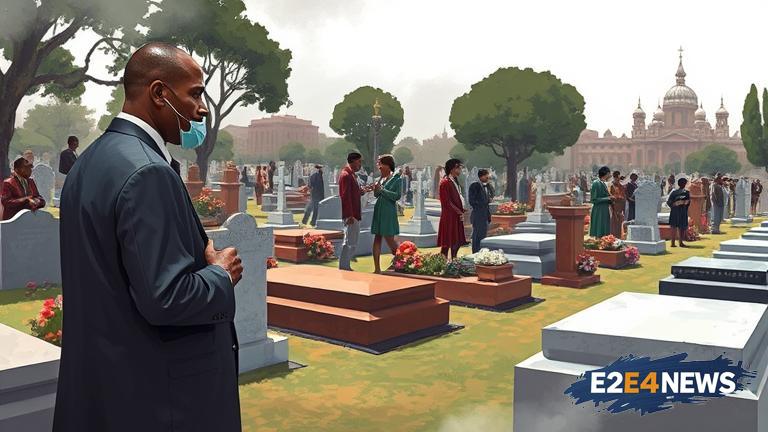The mayor of Johannesburg has made a public plea to residents to consider cremation as a means of dealing with the dead, citing a critical shortage of cemetery space in the city. This move is seen as a necessary step to address the growing concern of limited burial grounds. The mayor emphasized that the city’s cemeteries are rapidly filling up, and if the trend continues, there will be no space left for future generations. He also highlighted the environmental benefits of cremation, noting that it requires significantly less land than traditional burials. Furthermore, cremation is considered a more cost-effective option for families, as it eliminates the need for expensive coffins and burial plots. The mayor’s appeal comes as the city struggles to find new locations for cemeteries, with many of the existing ones reaching maximum capacity. The shortage of cemetery space has been exacerbated by the city’s rapid population growth, which has put a strain on existing infrastructure. In response to the crisis, the city has begun exploring alternative solutions, including the development of new cemeteries and the promotion of cremation as a viable option. However, some residents have expressed concerns about the cultural and religious implications of cremation, citing traditional beliefs and practices that emphasize the importance of burial. Despite these concerns, the mayor remains committed to finding a solution to the crisis, and has urged residents to consider the long-term benefits of cremation. He has also announced plans to invest in new cremation facilities and to provide education and outreach programs to inform residents about the benefits of cremation. The city’s cemetery space shortage is not a new issue, but it has become increasingly pressing in recent years. The mayor’s appeal is seen as a necessary step to address the crisis and to ensure that the city is able to provide adequate burial services for its residents. In addition to promoting cremation, the city is also exploring other alternatives, including the use of vertical cemeteries and the development of new technologies for dealing with the dead. The mayor has emphasized that the city is committed to finding a solution that is respectful of the city’s diverse cultural and religious traditions. He has also announced plans to establish a task force to explore new solutions to the cemetery space shortage, and to provide recommendations for addressing the crisis. The task force will be comprised of representatives from various stakeholders, including funeral homes, religious organizations, and community groups. The mayor’s appeal has sparked a lively debate about the future of death care in Johannesburg, with some residents expressing support for cremation and others opposing it. As the city continues to grapple with the cemetery space shortage, it is clear that a solution will require a multifaceted approach that takes into account the city’s cultural, religious, and environmental needs. The mayor’s commitment to finding a solution is seen as a positive step, and it is hoped that his appeal will help to raise awareness about the importance of addressing the cemetery space shortage. In the coming months, the city will be exploring new solutions to the crisis, and it is likely that cremation will play a significant role in the city’s death care strategy. The mayor’s appeal is a call to action, and it is hoped that residents will respond by considering cremation as a viable alternative to traditional burials. By working together, the city can find a solution to the cemetery space shortage that is respectful of the city’s diverse traditions and that ensures the long-term sustainability of the city’s death care services.




